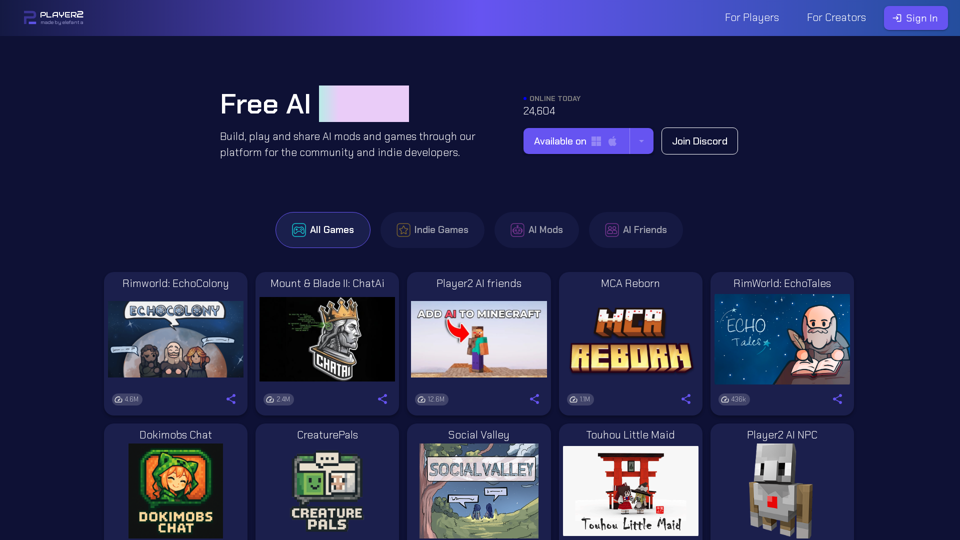What's AI in Gaming
Artificial Intelligence (AI) in gaming refers to the use of AI technologies to create responsive, adaptive, and intelligent behaviors in video games. This primarily involves controlling non-player characters (NPCs) to simulate human-like intelligence. AI in gaming has evolved significantly since its inception, providing more immersive and engaging experiences for players.
Key Components of AI in Gaming
- NPC Behavior: AI controls NPCs, allowing them to react dynamically to player actions, enhancing the realism of the game.
- Procedural Content Generation: AI generates game content such as levels and quests, offering diverse and unique experiences.
- Game Testing and Balancing: AI simulates numerous gameplay scenarios to identify bugs and balance game mechanics efficiently.
Benefits of AI in Gaming
AI brings numerous advantages to the gaming industry, enhancing both the development process and the player experience.
Enhanced Player Experience
- Immersive Gameplay: AI creates lifelike situations, making games more engaging and exciting.
- Adaptive Challenges: AI adjusts game difficulty based on player behavior, ensuring a balanced and enjoyable experience.
Efficient Development
- Procedural Generation: Reduces development time and costs by automatically creating game content.
- Game Testing: AI-powered testing identifies bugs and optimizes game mechanics more effectively than manual testing.
Future Innovations
- AR, VR, and Mixed Reality: AI enhances adaptability and interaction within these environments, paving the way for innovative gaming experiences.
- Data Mining: AI analyzes player behavior to improve game design and identify monetization opportunities.
How to Use AI in Gaming
Implementing AI in gaming involves several techniques and methodologies that developers can leverage to enhance their games.
Techniques for AI in Gaming
- Rule-Based AI: Uses predefined rules to dictate NPC behavior in specific scenarios.
- Finite State Machines: Models NPC behaviors through distinct states and transitions based on triggers.
- Pathfinding AI: Determines optimal paths for NPCs to navigate game environments.
- Machine Learning AI: Allows NPCs to learn and adapt from player interactions, offering a more dynamic experience.
Applications of AI in Gaming
- NPC Development: Create NPCs that exhibit complex behaviors and adapt to player actions.
- Game Content Creation: Use AI to generate diverse and replayable game content.
- Game Balancing: Employ AI to dynamically adjust game difficulty and balance multiplayer experiences.
Future of AI in Gaming
The future of AI in gaming promises even more sophisticated and personalized experiences for players.
Emerging Trends
- Cloud-Based Gaming: AI will enhance cloud gaming by optimizing streaming and gameplay experiences.
- Voice and Audio Recognition: AI will enable more natural interactions with games through voice commands.
- Wearable and VR Gaming: AI will improve the realism and interactivity of virtual and augmented reality games.
Challenges and Considerations
- Complexity and Realism: Balancing AI complexity with game performance remains a challenge.
- Player Experience: Ensuring AI enhances rather than detracts from the gaming experience is crucial.
AI in gaming continues to evolve, offering exciting possibilities for developers and players alike. As AI technologies advance, the gaming industry is poised to deliver even more immersive and engaging experiences.



